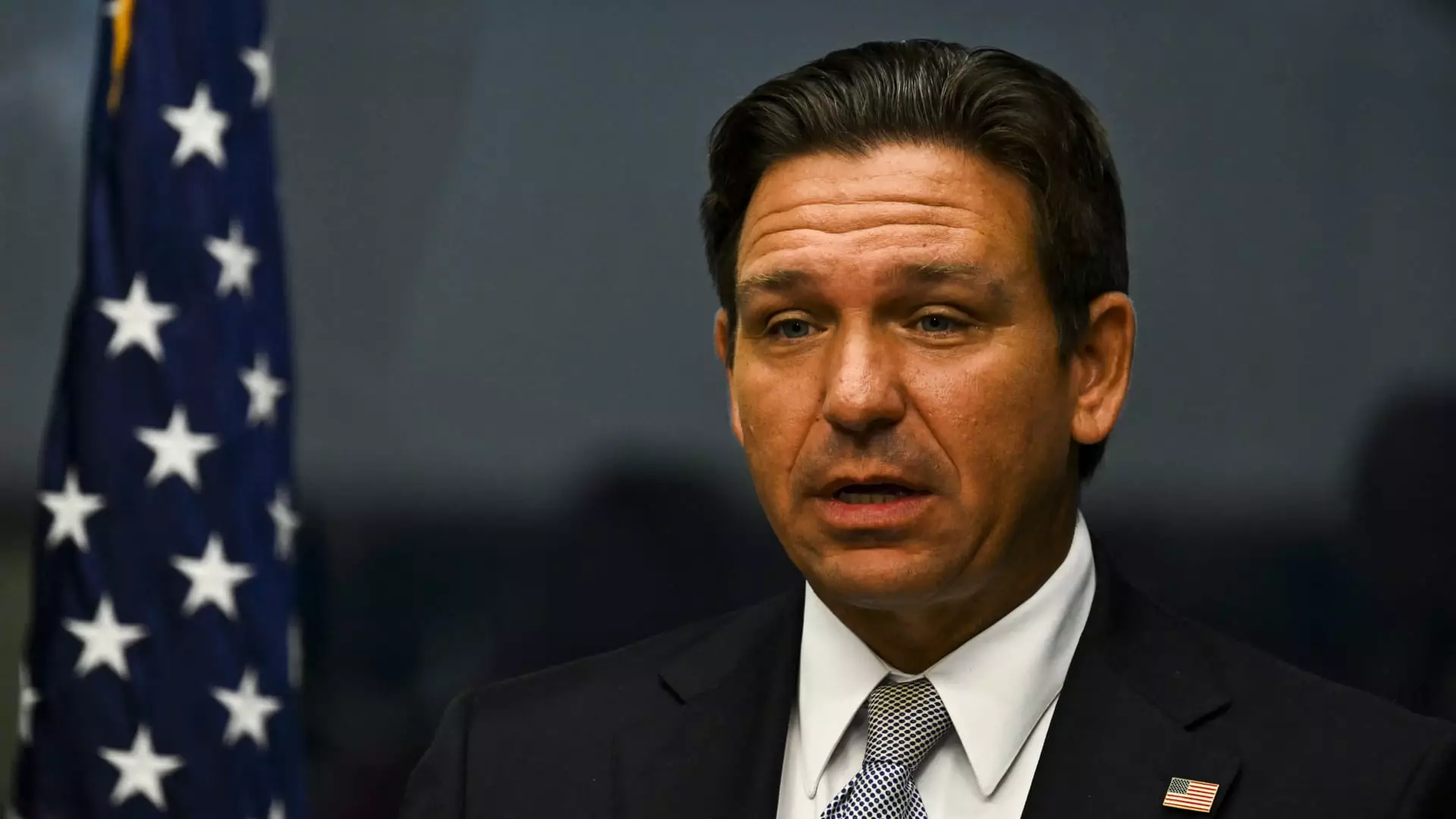In the aftermath of Hurricane Helene’s destructive landfall in Florida, a complex interplay of politics and emergency management has unfolded. The hurricane, known for causing significant devastation particularly in the Big Bend region and rural North Florida counties, has also unveiled friction between state and federal leaders. Governor Ron DeSantis’s avoidance of outreach from Vice President Kamala Harris, under the premise that her intentions appear political, raises crucial questions about the nature of collaboration during disaster recovery efforts.
Hurricane Helene left a trail of destruction; cities along the Gulf Coast faced severe flooding and debris challenges. The dilemma intensifies as Florida braces for the arrival of Hurricane Milton, anticipated to further strain the state’s resources already stretched thin by the previous storm.
Reports suggest that DeSantis has been unresponsive to calls from Harris concerning recovery efforts, which many perceive as politically motivated. A notable aide indicated that the governor refrained from engaging due to the presumption that Harris’s overtures were more about advancing political narratives than addressing genuine recovery needs. Furthermore, DeSantis’s lack of communication with President Joe Biden adds another layer of scrutiny to his leadership choices amid the crisis. He received a call from Biden but was unable to respond, highlighting a missed opportunity for collaboration.
The choice to prioritize certain communicative engagements during a time of disaster can have significant repercussions. By not actively collaborating with federal leadership, DeSantis risks alienating resources and support that are crucial for recovery. The federal government can serve as a vital ally, particularly when natural disasters create overwhelming challenges at the state level.
Despite the apparent political rift, DeSantis has maintained direct communication with federal emergency management officials, specifically Deanne Criswell, the Director of FEMA. His assertion that Florida can manage the recovery effectively and should shift attention to other states like North Carolina has elicited stark comparisons with other governors. For example, both Georgia’s Brian Kemp and South Carolina’s Henry McMaster, despite political affiliations, expressed gratitude to President Biden for federal support, contrasting sharply with DeSantis’s reluctance to engage similarly.
The contrasting tones of leadership from various governors not only reveal diverging priorities but also the potential benefits of bipartisan cooperation in disaster recovery scenarios. Engaging constructively with federal officials can expedite resource allocation and streamline recovery processes.
The looming threat of Hurricane Milton adds urgency to Florida’s response mechanisms, emphasizing the need for swift action. As resources return from North Carolina, the focus shifts back to Florida, especially for coastal cities still recovering from Helene’s aftermath. This cyclical nature of hurricanes necessitates a proactive stance from both state and federal entities to mitigate damage and expedite recovery.
In his initiative dubbed Operation Blue Ridge, DeSantis emphasized a proactive approach by dispatching state resources to assist neighboring states affected by Helene. However, this self-reliant attitude requires careful balance; as state resources are stretched, reliance on federal support might become increasingly critical. With Milton approaching, Florida’s leadership must navigate these complexities efficiently.
Aside from political theatre, the gravity of these storms is underscored by their human toll, which was marked by over 200 casualties and widespread destruction. Former President Trump’s politicization of storm recovery efforts, alongside the spread of misinformation concerning the Vice President’s engagements, only detracts from the dire reality impacted communities face. Effective disaster response transcends political boundaries, demanding collective effort and unwavering focus on the well-being of residents affected by these catastrophic events.
As Florida moves forward in the wake of Hurricane Helene while bracing for Hurricane Milton, the imperative for unity in disaster management has never been more pressing. The political friction between state and federal leaders cannot overshadow the necessity of collaboration in alleviating the impact on communities that continue to face the repercussions of nature’s fury. The challenge lies not just in recovery but in fostering a resilient political landscape that prioritizes people over politics.



Leave a Reply